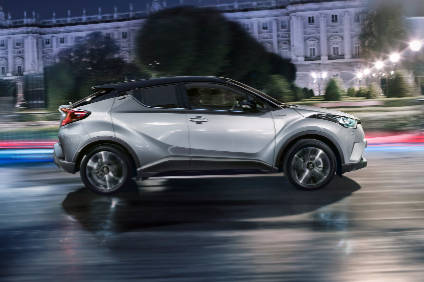
Toyota is reportedly planning to launch an EV equipped with solid-state battery technology in Japan by 2022.
A report in the Chunichi Shimbun newspaper suggests that the new battery technology would facilitate quicker charging and longer range than the current lithium-ion batteries that are used for most EVs.

Discover B2B Marketing That Performs
Combine business intelligence and editorial excellence to reach engaged professionals across 36 leading media platforms.
The report said that a full charge can be achieved in minutes for solid-state batteries.
The report notes that an all solid-state battery promises around twice the amount of held charge of the lithium-ion battery and that Toyota has been researching solid-state batteries for many years. The company announced last year that it discovered a solid material suitable for electrolytes in collaboration with Tokyo Institute of Technology and others.
The report also said that Toyota is planning a new EV platform for the new set-up.
The newspaper also noted that a full EV based on the compact crossover/SUV hybrid C-HR will be produced and sold in China by 2019 using existing lithium-ion battery technology.
Solid-state batteries use a solid rather than liquid for the electrolyte that acts as the pathway for ions during charging and discharging. Unlike lithium-ion batteries, there is no risk of liquid leakage and thermal management is more straightforward, in theory. The main advantage, however, is higher energy density and a better power-to-weight ratio, compared with lithium-ion batteries, thus making them especially suitable for electric vehicles.
Bosch sees the potential to more than double battery energy density through the deployment of solid-state batteries. A comparable electric car that has a driving range today of 150 kilometres would be able to travel more than 300 kilometres without recharging, reckons the supplier.
Analysts caution that developing reliable solid-state battery technology for mass production applications still presents a considerable challenge for vehicle manufacturers. However, Toyota’s apparent commitment to get a solid-state battery equipped vehicle to market by 2022 is sure to spark further interest in the technology among other OEMs and suppliers. Volkswagen Group is also working on solid-state battery technology.
Toyota is planning to raise its game in full EVs, seen as a future high growth area where it currently trails Nissan.
See also: Toyota to produce EVs in China from 2019






